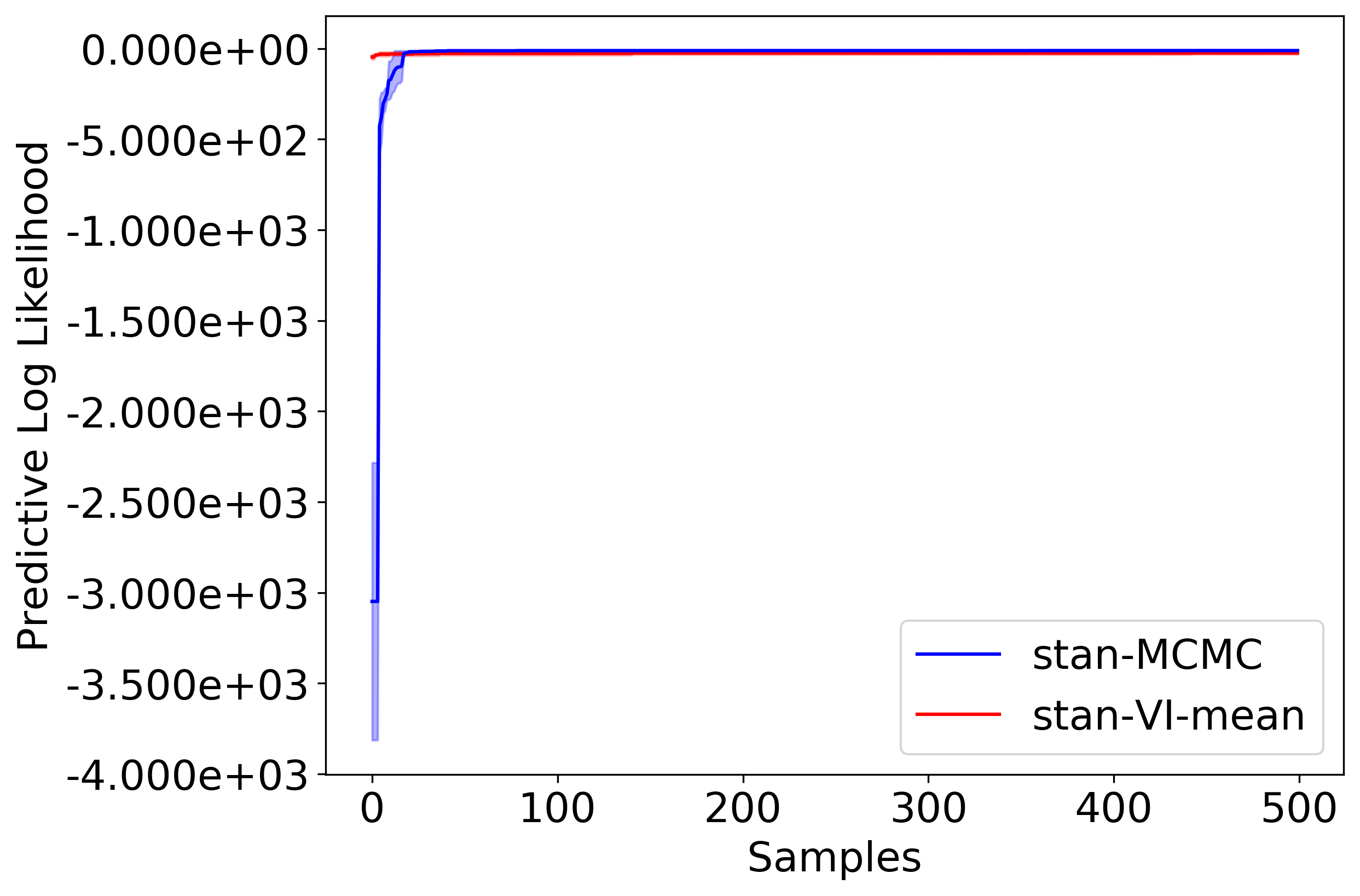PPL Bench is a new benchmark framework for evaluating probabilistic programming languages (PPLs).
-
Download/Clone PPL Bench:
git clone https://github.com/facebookresearch/pplbench.git -
Installing dependencies:
-
Enter a virtual (or conda) environment
-
Install PPL Bench core:
pip install . -
Install PPLs that you wish to benchmark. For PPL-specific instructions, see Installing PPLs. You could also run the following command to install all PPLs that are currently supported by PPL Bench (except for Jags):
pip install .[ppls]
-
Let's dive right in with a benchmark run of Bayesian Logistic Regression. To run this, you'll need to install PyStan (if you haven't already):
pip install pystan
Then, run PPL Bench with example config:
pplbench examples/example.json
This will create a benchmark run with two trials of Stan on the Bayesian Logistic Regression model. The results of the run are saved in the pplbench/outputs/ directory.
This is what the Predictive Log Likelihood (PLL) plot should look like:

Please see the examples/example.json file to understand the schema for specifying benchmark runs. The schema is documented in pplbench/main.py and can be printed by running the help command:
pplbench -h
A number of models is available in the pplbench/models directory and the PPL implementations are available in the pplbench/ppls directory.
Please feel free to submit pull requests to modify an existing PPL implementation or to add a new PPL or model.
For more information about PPL Bench, refer to
See the CONTRIBUTING.md file for how to help out.
This source code is licensed under the MIT license found in the LICENSE file in the root directory of this source tree.
